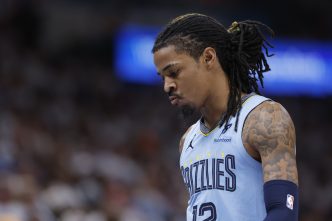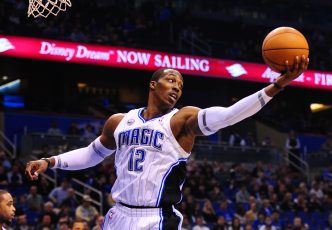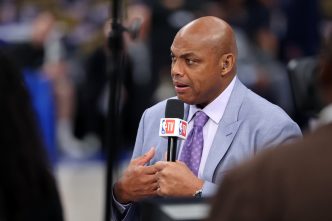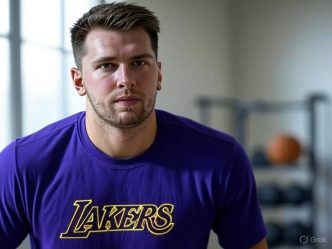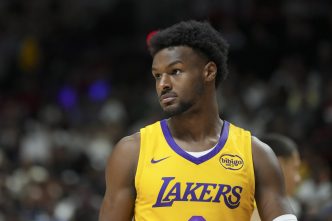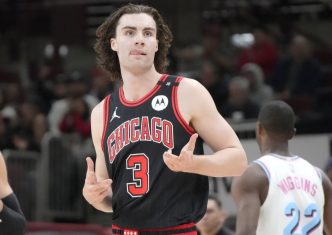HOUSTON — The Warriors faced a gut-wrenching turn of events in Game 2 against the Rockets when star forward Jimmy Butler fell hard late in the first quarter, suffering what appeared to be a pelvis contusion. The injury forced him to exit the game after just eight minutes of play, a loss that weighed heavily on Golden State as they fell to Houston, 109-94, squaring the series at 1-1.
Butler is scheduled for an MRI in San Francisco on Thursday to assess the damage. Losing a player of his caliber during such a pivotal playoff game is a shattering blow to the Warriors’ ambitions.
“Obviously feel terrible for Jimmy,” Warriors head coach Steve Kerr commented after the game. “Hopefully he’s OK. We’ll see.” The team would breathe a sigh of relief if Butler’s MRI brings good news, but the uncertainty looms large as the Warriors prepare for Game 3 at Chase Center on Saturday night.
As Kerr looks ahead, the situation adds some complexity to game strategy. When asked about Jonathan Kuminga’s potential role should Butler be unavailable, Kerr acknowledged the need to rework their game plan. Kuminga, who had struggled to find minutes toward the end of the regular season, did contribute 11 points during the Game 2 loss after playing 26 minutes.
“I mean, if Jimmy’s out, we have to rethink everything,” Kerr said, highlighting the ripple effects a key injury can have on a playoff team. “Like rotations, who starts and the best combinations and all that stuff.”
The injury unfolded in dramatic fashion. With 2:28 remaining in the first quarter, Butler leaped to collect a defensive rebound but was inadvertently undercut by Amen Thompson, leading to a painful fall directly onto his tailbone. While Thompson briefly went down himself after the collision, Butler’s immediate grimace indicated the seriousness of his predicament. Despite showing grit and making one free throw, he soon signaled that he needed to leave the game, visibly struggling to maintain his normal mobility.
Post-game, Draymond Green shared that he spoke with Butler, who reassured him that he was feeling better. “Jimmy’s only going to tell you he feels good,” Green said. “We’ll see. He’s given me zero reasons to not believe anything he says, so I do believe him.” However, the prospect of Butler missing additional time would undoubtedly throw a wrench into the Warriors’ postseason plans.
Since Butler’s arrival on February 8, the Warriors had ignited a new spark in their season, holding a 25-8 record that includes play-in and postseason games. His arrival has not only eased the scoring burden off Stephen Curry but also stabilized crucial minutes when Curry is off the floor. On the defensive end, Butler has emerged as a key piece, propelling Golden State to the top of the league defensively since his debut.
In terms of individual performance, Butler had been showcasing his “Playoff Jimmy” prowess, significantly elevating his game. Just prior to his injury, he had lit up the stat sheet with 25 points, 7 rebounds, 6 assists, and 5 steals in the playoff opener against the Rockets and followed up with strong outings in earlier postseason games.
Adding to the Warriors’ woes, starting guard Brandin Podziemski was limited to just 14 minutes due to illness, which Kerr later revealed was linked to food. Podziemski managed to push through six minutes in the second half but went 0-for-5 from the floor, emphasizing how illness can also derail player performance in critical games.
As the Warriors return home with home-court advantage, all eyes will be on the results of Butler’s MRI. “Hopefully Jimmy will be able to play,” Kerr said, balancing hope with the reality that they may need to adapt quickly. Should the worst come to pass, the Warriors will have to pivot and put together a solid game plan against a formidable Rockets team, ready to seize any opportunity that arises.



